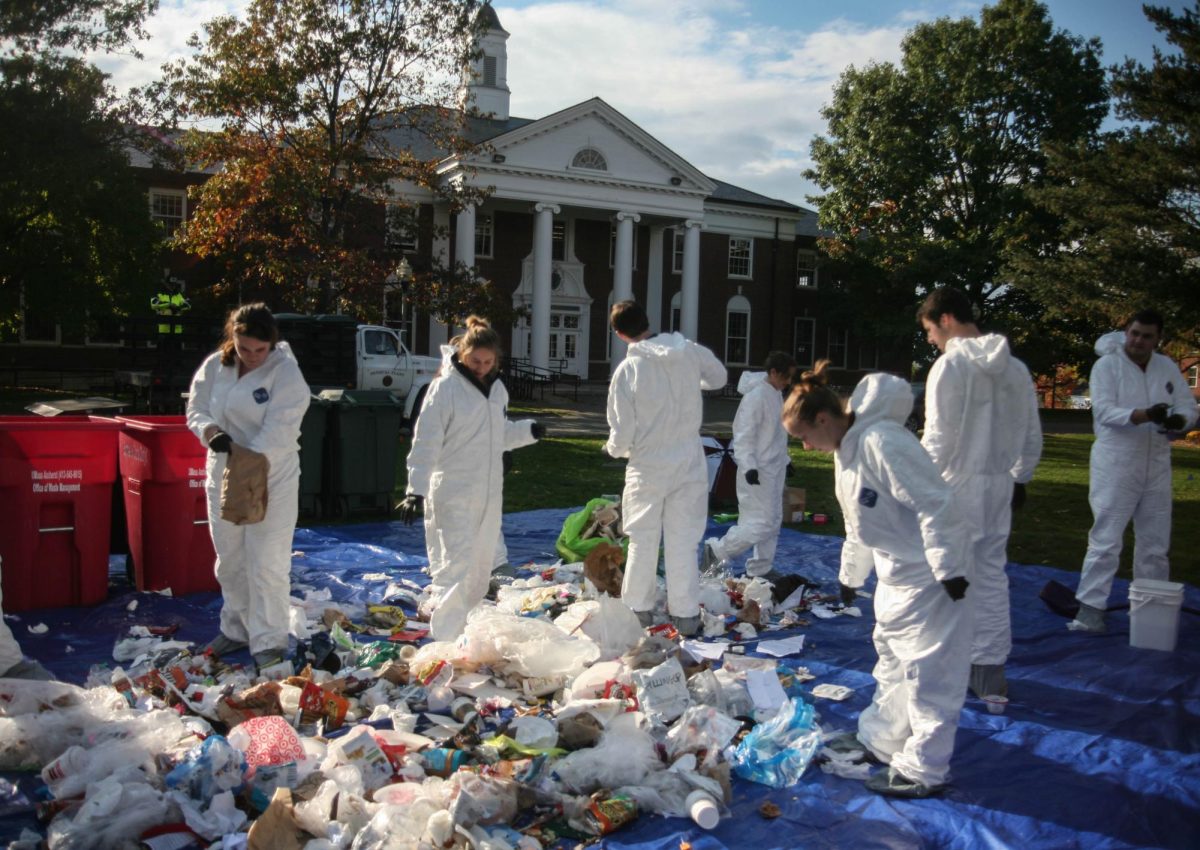
Just after the October snowstorm, I went to Craig’s Doors, the local homeless shelter, to do a story on the homeless in Amherst and how the storm affected them.
Of the 29 guests that were there, the person I remember most clearly from that visit is Mary, a regular at the shelter for the last three “seasons.”
Her black hair was matted into complicated knots that could only be caused by months of not being brushed and was pinned with the colorful barrettes of preschoolers. Her clothing was mismatched and torn, and there was a cut with traces of dried blood on her arm.
She sat at the center of the collapsible table where the guests are served dinner each night, talking a mile a minute to anyone who would listen about her day. Occasionally, she would break into a rant about how you can’t trust some people while staring down the men sitting around her.
Then, all of the sudden, her voice would start to fade and her eyes would glaze over as her words slurred together.
She wasn’t drunk, high or otherwise intoxicated.
She was mentally ill, schizophrenic to be exact.
According to executive director of Craig’s Door Laura Quinn, it was a bad day for Mary. If I had caught her on a different night, she might have been the liveliest person I had ever talked to.
But that night, Mary was a wreck, and very much in need of help.
Approximately 45 percent of the homeless population reports having some form of mental illness, according to the National Alliance to End Homelessness. About 25 percent of the population suffers from a serious condition, such as Mary’s.
When talking about the homeless, people frequently describe them as lazy, irresponsible, good-for-nothing and so on. They are perceived as drug addicts, and frequently accused of being responsible for their situation. If they had completed their college degree, worked harder, or got a job, they wouldn’t be on the streets. They would be productive members of society.
But when it is hard to string together a coherent sentence, it is hard to write a term paper. And when you are hearing voices and hallucinating, it is hard to hold a steady job. And when you are on the streets or stuck without appropriate health care, it is hard if not impossible to get help.
The average yearly cost of medication to treat schizophrenia is $25,940 according to a study published in 2000 by “Psychiatric Services” – an impossible sum for someone who spends their time on a street corner in Amherst or Northampton asking for spare change.
And even if the medications were readily available and affordable, that does not mean that solving problems such as Mary’s would be simple. Far from it.
In many cases, people with schizophrenia are paranoid, making them highly unlikely to seek help and very suspicious of the help they receive. To a paranoid schizophrenic, medication that could help them could also be a poison, and the therapist trying to help them could just be spreading rumors about them and laughing behind their back.
Then, of course, there is the matter of finding the appropriate medication. Treating mental illness involves finding the right combination out of hundreds of possible medications and balancing the side effects, a difficult task in the best of situations.
In the case of a homeless person, prescribing the wrong medication could easily cause the person to disappear off the map if it aggravated suicidal feelings or feelings of paranoia. Even when the bottle is gone, the person could never come back.
Storage of the medication is also a problem. Someone who does not have a home is unlikely to have a place to refrigerate temperature sensitive medications or otherwise keep them safe.
So saying that homeless people with mental health issues should simply seek out help isn’t really that simple. In fact, it is pretty complicated, especially for a person with extremely limited resources.
Mary, for one, would love to have a job and according to her, she has had several. She just hasn’t been able to keep them. And as she said her herself, it’s not her fault.
She’s sick, and until attitudes towards the homeless change and better programs are put into place to help the thousands of people like her living on the streets, it is not going to get any better for Mary.
But, it definitely could get worse.
Katie Landeck is a Collegian columnist and can be reached at [email protected].












